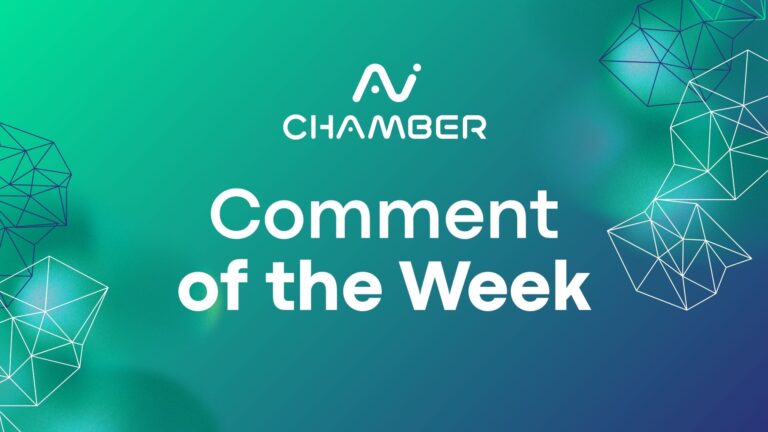Money Talks Louder Than Strategies


Last week we covered the different approaches to national and regional AI strategies around the world. Strategies are of course very important – it’s difficult to achieve desirable outcomes without a clear vision and an actionable roadmap.
However, in the world of policy, there exists one simple truth that politicians and bureaucrats often ignore: even the boldest strategy is worth exactly as much as the budget allocated to implement it. South Korea has just given us a masterclass in how to take the artificial intelligence revolution seriously.
Seoul has announced its 2026 budget of roughly $524.2 billion – a hefty 8.1% increase that represents the largest jump in the country’s history and is meant to act as a stimulus for the ailing economy.
The real revolution, however, is in the allocation of the extra funds, which marks an extraordinary effort to push high-tech investment: research and development expenditure will surge by 19.3% to a record 35.3 trillion won ($25.35 billion), and funds earmarked for AI development will TRIPLE, to over 10 trillion won (from 3.3 trillion this year).
South Korea is really speaking in the language of numbers, where other countries often limit themselves to hollow declarations. This is a strategic decision by a nation that has understood the fundamental truth of our times: in the AI era, winners will be those who invest not just wisely, but above all, massively.
When Rhetoric Meets Reality
In last week’s comments, we wrote about the global abundance of AI strategies. Almost every government has its “National Artificial Intelligence Strategy,” every ministry has published its “Digital Transformation White Paper,” and politicians compete in visionary speeches about the future of technology. These however, often do not come with the necessary budgetary allocations or regulatory initiatives.
While other countries or blocks (looking at you EU!) endlessly discuss the need to “strengthen positions in the AI race,” Korea simply allocates $25 billion to research and development, tripling its AI funds. While others create AI acts, boards, and committees, Seoul builds a financial bedrock for future technological breakthroughs. This is the difference between declarative policy and results-oriented policy.
Korea hasn’t reinvented the wheel – it has simply applied the proven Asian recipe for technological success. The same strategy that led to the creation of giants like Samsung and LG is now being directed toward AI. The key elements are: massive, long-term state investments, focus on research and development, and building an innovation ecosystem from the ground up.
Where Are Europe’s Billions?
Comparing Korea’s approach with European initiatives, it’s hard to escape the impression that the Old Continent has gotten stuck in the planning phase. The European Union is famous for AI regulation, but where are the European equivalents to this sort of financial commitment? Where is Europe’s Manhattan Project for artificial intelligence?
It’s not that Europe lacks strategy – it has too many of them. The issue is that we lack the courage to put all our chips on one bet and invest all available resources in it. President Macron grabbed headlines early this year with his 109 billion euro investment plan, but that is based mostly on private sources and is not guaranteed to bring the hard cash where it is needed the most. Europe also doesn’t lack money – the Recovery and Resilience Fund’s is providing 650 billion EUR to help build the “NextGenerationEU”. How much of it is really helping our high-tech and AI sectors?
Korea’s example shows that in the technology race, being smart isn’t enough – you also need to be bold and decisive. This is especially important in environments where, for various reasons, private investment is lagging. The lack of federal funding in the US is not a huge issue, thanks to the huge amount of private investment funds slushing about. A lot of it comes from Europe – a real “money drain” on the continent’s ecosystem that speaks volumes about where the real incentives to invest lie.
The Future Belongs to the Bold
For other countries, including those in Europe and beyond, Korea’s budget should serve as an alarm bell. In the AI era, there’s no room for half-measures. Either we invest on a scale matching the challenge, or we condemn ourselves to the technological periphery. Korea has just shown what the first scenario looks like. It’s high time other countries followed suit.
History has taught us that technological revolutions reward pioneers and punish the hesitant. Korea has bet on AI as decisively as it once bet on heavy industry or electronics. We’ll know the results of this strategy in a few years, but we already know one thing: when the era of full AI dominance arrives, Korea will have every right to say it was ready.
Will we?
· More articles

The AI Act Comes Into Force. Poland Has a Chance to Build the Regulator of the Future — But Time Is Running Out
The beginning of August marks an important milestone for artificial intelligence regulation in Europe. In line with the AI Act timeline, several key provisions have now entered into force — including those related to the obligations of general-purpose AI (GPAI) providers and the governance structures at both EU and Member State levels. For Poland, this […]

What Does a Yacht Have to Do with Development? The Strategic Drift of Poland’s Economic Policy
The HoReCa sector support programme under the National Recovery Plan, which has been stirring public debate for the last week, should be more than just another topic in the daily political squabble. It has revealed a broader, systemic problem that calls for deeper reflection. While headline-grabbing cases of funding yachts or saunas rightly raise questions […]
